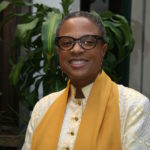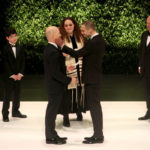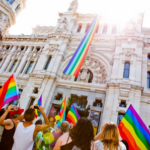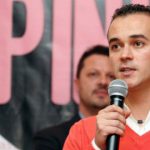By Richard Ammon
GlobalGayz.com
2022
Intro: gay travelers roam the world with backpacks or tuxedos as they explore foreign cultures and encounter others gays worldwide in resorts, beaches and big ships. However, beyond the popular destinations and colorful festivals are countless closeted or impoverished or endangered lesbians and gay men whom most gay travelers do not see. This essay looks around the globe and finds that ‘gay life’ means hard life as well as good life.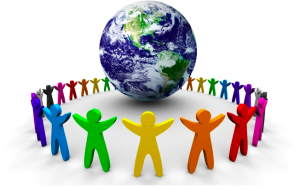
Last year I flew into Montego Bay, the highly touted, slick resort-filled north coast of Jamaica where northern European and American sun-seekers—gay and straight–fly in on chartered jets to warm up from the winter. The seaside of MB is a manicured strip of sand and golf course greens; the palatial hotel rooms glisten with marble floors and the dining rooms are filled with banquets of decorator food–just like the pictures in the brochures and on the glossy pages of gay magazines such as Passport, Out, Out & About and Advocate, a place where the spring swimsuit issue was photographed. Style, luxury, glamour, spas and airport shuttles help ensure a visitor flies home with pleasant memories and a camera full of colorful surf and sand images–the same airport shuttles that whisk guests past the tumbledown outlying neighborhoods where most Jamaicans—gay and straight–live.
I didn’t stay long in MB. I rented a car and drove along the coast then south to Kingston, stopping overnight to sleep at one of Noel Coward’s two houses (Blue Harbour and Firefly ) which he built as retreats from his reputation–despite an endless bevy of famous actors, writers, royalty (the Queen Mother Elizabeth) and politicians (Winston Churchill). His was gay luxury far beyond—and insulated from–the common crowd.
Fear and Hiding
Few gay visitors venture to Kingston let alone to the clandestine Jamaican gay and lesbian organization J-FLAG that dares not put a sign on its property or post their address on their web site. And certainly no gays—or even members of J-FLAG—were there to protect Nokia Cowen last month when he was chased by a small mob of roughnecks in downtown Kingston toward the harbor where, terrified of being beaten because of a rumor he was gay, he jumped into the water and drowned as his assailants stood by cheering his death.
What better litmus test for a nation’s ‘civilization’ than its reaction to homosexuality? What better gauge of a society’s humanistic values than its attitude toward same-sex couples? What better gauge of a government’s justice than its statutes regarding private consensual sexual behavior. In Jamaica both gauges read danger; it’s a criminal offense to be gay.
In Egypt, Ari was 18 and just coming out when he made tentative steps to meet other guys by using the Internet. An enthusiastic responder e-mailed to Ari his keen interest to see if they were compatible. An arranged time and place was set for a McDonald’s in Cairo; when he arrived and looked around a stranger walked up to him and asked if his name was Ari. He replied ‘yes’ with fear and hope. Immediately he was hustled outside by five plain-clothes policemen who took him into custody where he was arrested humiliated, insulted and incarcerated for two months before his upper-middle class family—humiliated as well at this breach of family honor—could bribe and use connections to get Ari released. His father would not speak to him for weeks afterwards. In Egypt it’s a criminal offense to be gay. (See ‘A Boy’s Nightmare’ in this story)
It hardly needs repeating how politics, religion and society have made a mash of human rights in their midst. Few other ‘issues’ evoke an equal ‘sturm and drang’ reaction from non-gay citizenry around the world—from Siberia to Zimbabwe to Beijing. Homosexuality is a storm cloud; wherever I travel I carry an umbrella—but usually it leaks and I come face to face with oppression. A short time after I wrote my gay Jamaica story, my interviewee, Brian Williamson–who became a friend–was murdered. A year later another activist Steve Garvey was killed in the same town.
In Morocco, George was a gay professor from California who taught in England. He lived part-time in El Jadida where he befriended numerous young men over the years and helped to educate and find them jobs far better than their impoverished backgrounds could ever allow. Of course there was sexual intimacy but usually only for while as the young men reached marrying age; George was often invited to the wedding and became ‘uncle’ to the new family. His generosity was cut short one night, a few months after I visited him, by a young assailant with a knife whom George had befriended the year before. In a fit of rage, George’s life was taken and the young man’s life of possibility was slammed shut behind locked doors.
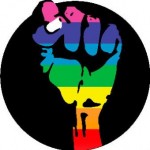 Much like a ship skimming the surface of a deep sea, the average gay traveler, western and middle/upper class, does not attend—or intend—to the less glamorous, behind-closed-doors personal struggles which most gay people in this world encounter. What these gay cruisers don’t see is how dangerous life is for the vast majority of homosexuals worldwide. ‘Holiday’ travel does not reveal the enormity or dark recesses of the infamous ‘closet’ where Islamic gays tremble to go outdoors or where Nepalese lesbian couples are torn apart and beaten by hateful cousins.
Much like a ship skimming the surface of a deep sea, the average gay traveler, western and middle/upper class, does not attend—or intend—to the less glamorous, behind-closed-doors personal struggles which most gay people in this world encounter. What these gay cruisers don’t see is how dangerous life is for the vast majority of homosexuals worldwide. ‘Holiday’ travel does not reveal the enormity or dark recesses of the infamous ‘closet’ where Islamic gays tremble to go outdoors or where Nepalese lesbian couples are torn apart and beaten by hateful cousins.
Nor do they meet quiet heroes like Thomas in Taiwan. (See Thomas and Martin in this story) Thomas, a polite soft-spoken young man told his story of devotion and hiding: his lover of four years, Nathan, contracted HIV and was getting weak to the point where he could no longer work and support his parents with whom he lived. Thomas agreed—as a ‘best friend’—to move in to Nathan’s house and support him and the parents who did not know Nathan was gay, did not know Thomas was his lover and did not know Nathan had HIV. Yet during his narration, there was no trace of self-pity or resentment in Thomas’ voice. It was, he quietly insisted, his duty as a ‘family member’.
I travel with a pencil, pad and computer. I write about gay life around the world, like these Asian and Egyptian fogs of silence and coverings–as well as Dutch and Spanish gay marriage. I feel like a weatherman of sorts recording the countless cloud-bursts and sunshine that temper the lives of individuals whose sexuality doesn’t follow the majority. My pulpit is the ingenious platform of the Internet and my gospel is a web site called GlobalGayz.com. In the gigabites of pages on this site are the stories and testimonies of happy and sad queers told to me over the past dozen years. Also on the site are anguished and joyous news and related reports sent to me by LGBT individuals and news services.
In Bangkok, Winai, a young man from poor rural peasant-farmer family stood in a phone booth and caught the eye of a passing western stranger. A brief exchange of words led to a hotel room where they enjoyed each other’s bodies, followed by dinner and another planned encounter the next day. As usual, money was offered and taken followed by a departure with promises to write. E-mails followed with erotic messages and wired money (“can you please send me some money for English classes…”). Three subsequent years of mercenary visits by ‘sugar-dad’ and numerous payments passed between them. Then one day another request by-email for an unusually large sum of money (“because I am sick…”) which turned out to be an ill-conceived scam. Betrayed and hurt, the westerner broke off the affair and Winai returned to the streets (did he ever leave them?) poor as ever, continuing to hide his sexuality from his Buddhist family.
There are countless stories from worldwide LGBT folks of all races, religions, ethnicities, nationalities, male and female, rich and poor, for we are everywhere and we are everyone. We are a tapestry of infinite variation—a tattered tapestry torn by unjust laws and creeds and economies that keep us as outlaws, reviled and poor—and mostly invisible to each other.
The Good Life
Among our visible parts are some golden threads woven in from Europe and North America where we are a clever, adaptive and light-footed enough to escape detection by silence or emigration, or noisy enough to demand gay marriage in a few places. Not to be wholly flooded by the tides of oppression, ours is also a world that is brave and new.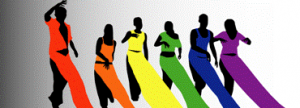
In Northampton, Massachusetts, two lesbian-mothers/partners, Liz and Ellen, are raising their two children (both birth-mothers of a child each) in a house they own together. One child’s birthday party is coming up and invitations were sent out to a dozen of their friends (some with kids, some not whom the kids called ‘aunties’) that results in an afternoon of noise and cake and presents. The women laugh and joke and gossip about their jobs, kids’ bruises and plans for getting married; in Massachusetts gay marriage is legal. Some of these women have parents who won’t speak a lover’s name while others have parents delighted to be invited to the party. None but one of these dozen women has ever had a serious experience of homophobic aggression. Life is good here.
Not long ago, my partner and I stood in the elegant tapestry-lined Marriage Room–complete with Baccarat crystal chandelier–in the City Hall of Stockholm, Sweden where gay and lesbian couples take an state sanctioned oath of commitment giving them all the same rights as a heterosexual marriage. In Norway, our hosts were Tor-Otto and Bjorn who got married in the Oslo Ting Huis (city hall) room several years ago, one in full native-costume and the other in full tuxedo drag, to the witness and delight of many friends. There was no fear and hiding here.
Progress continues for gay marriage elsewhere: Argentina, Belgium, Canada, Iceland, the Netherlands, Portugal, Spain, South Africa, Brazil, Mexico; in the USA: Connecticut, Iowa, Massachusetts, New Hampshire, New York, Vermont, plus Washington, D.C.
The thoughtful Homo-monument in Amsterdam commemorates in marble “all women and men ever oppressed and persecuted because of their homosexuality. Supports the international lesbian and gay movement in their struggle against contempt, discrimination and oppression. Demonstrates that we are not alone. Calls for permanent vigilance…” I meditated on this vortex of decency during my week of competition in the Gay Games V in 1998, and since, in which nearly 15,000 healthy LGBT athletes participated in 25 sports—followed by Amsterdam’s Gay Pride boat parade, an outrageous, loud and colorful celebration of gay life in Holland.
Meanwhile, across the globe, among the greatest glories of our human rights efforts, sit two esteemed openly gay justices on the supreme courts of their countries, the Honorable Michael Kirby of Australia (now retired) and the Honorable Edwin Cameron of South Africa. Both countries have strong anti-discrimination laws. Why? So far apart and so diverse in population? Perhaps it’s something to do with being burned by the extreme flames of discrimination—murderous apartheid against blacks in South Africa and Aborigines in Australia. Both deadly dark histories shocked those nations into awakening to the light of equality and fair play. To be sure, the cost of Kirby and Cameron rising so high has been the horrors of stooping so low.
In the USA, there are three state supreme court justices: Colorado, Vermont and New Jersey–all three are lesbians. How fine is that!
Disease and Curse
And of course never to be forgotten are the countless men and women—gay or not—felled and falling by AIDS. The worldwide tapestry of homosexuality also includes the AIDS Quilt—The Names Project, patches of cloth sewn together as memorials to dead lovers or brothers. No country on earth escapes this disease. In some parts of Africa, fifty percent of men and women are HIV+ or have full blown AIDS. To make treatment and education more difficult, homosexuality here is vehemently denied and is called a western disease.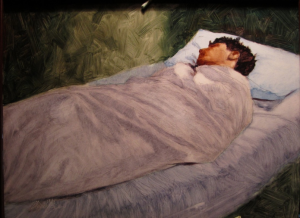
Yet very few gay travelers ever see the faces of HIV abroad as they fly, sail, hike or bike across the plains of Argentina or the hills of Scotland. Kingston or Uganda are clearly not places the venerable granddaddy of all gay travel agents, the late Hans Ebensten, with his tux-style trips, would have brought his guests.
In the USA, David was a bright, snappy and sexy blonde who loved to dance, cook and fall in love. His daring spirit was willing to play with untried experience, whether a new job, new friends, new cities, or outrageous disco dance costumes. An all-American/Israeli boy with good looks, education and opportunity in the play-lands of Los Angeles and Tel Aviv but, unfortunately, at a time when a strange disease was lurking in the bloodstream of a lot of gay men. In the midst of the AIDS plague he contracted the virus and lived for three years, before the modern age of retroviral medications, as his health declined and his spirit dimmed to a mere hollow memory. Although a few friends came to see him in the end, most did not.
And so the chessboard game of homosexual life in 200+ countries plays out—pawns and queens of love and hate, freedom and betrayal, progress and repression, monuments and murders. GlobalGayz.com is replete with stories and reports of endurance, achievement and celebration. The descriptions are mundane and heroic, silly and sickening, courageous and distraught. We are the canaries in the mines of civilizations—some of us lose our lives, most are wounded yet many escape and learn to sing.

